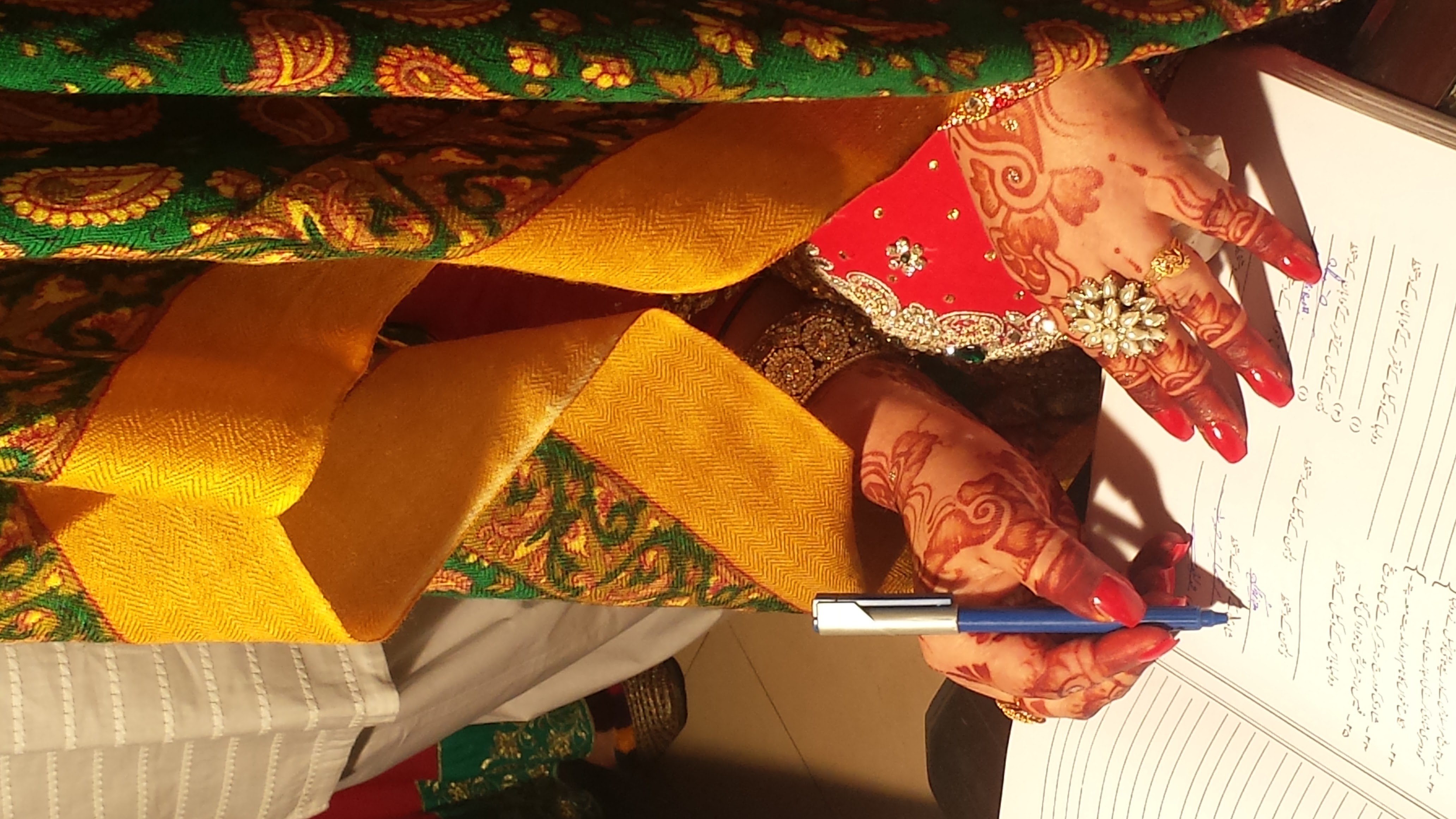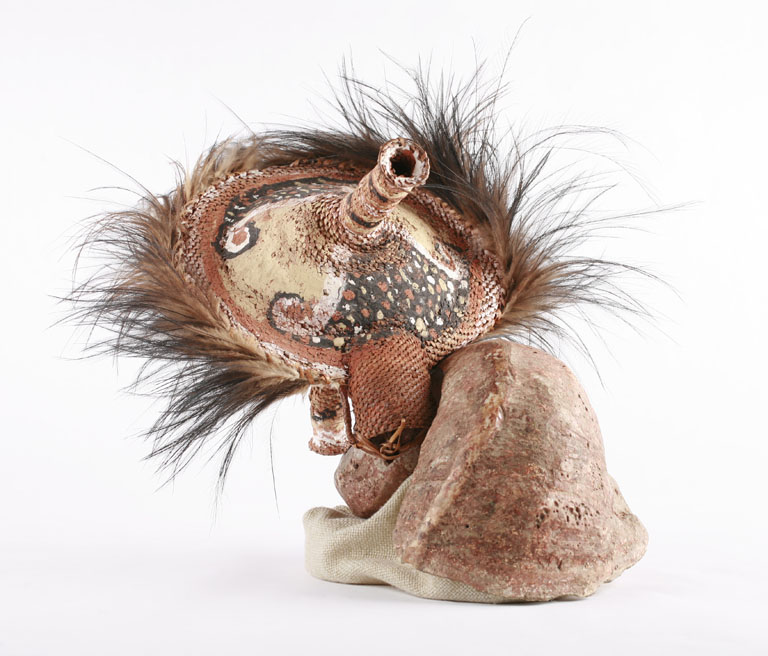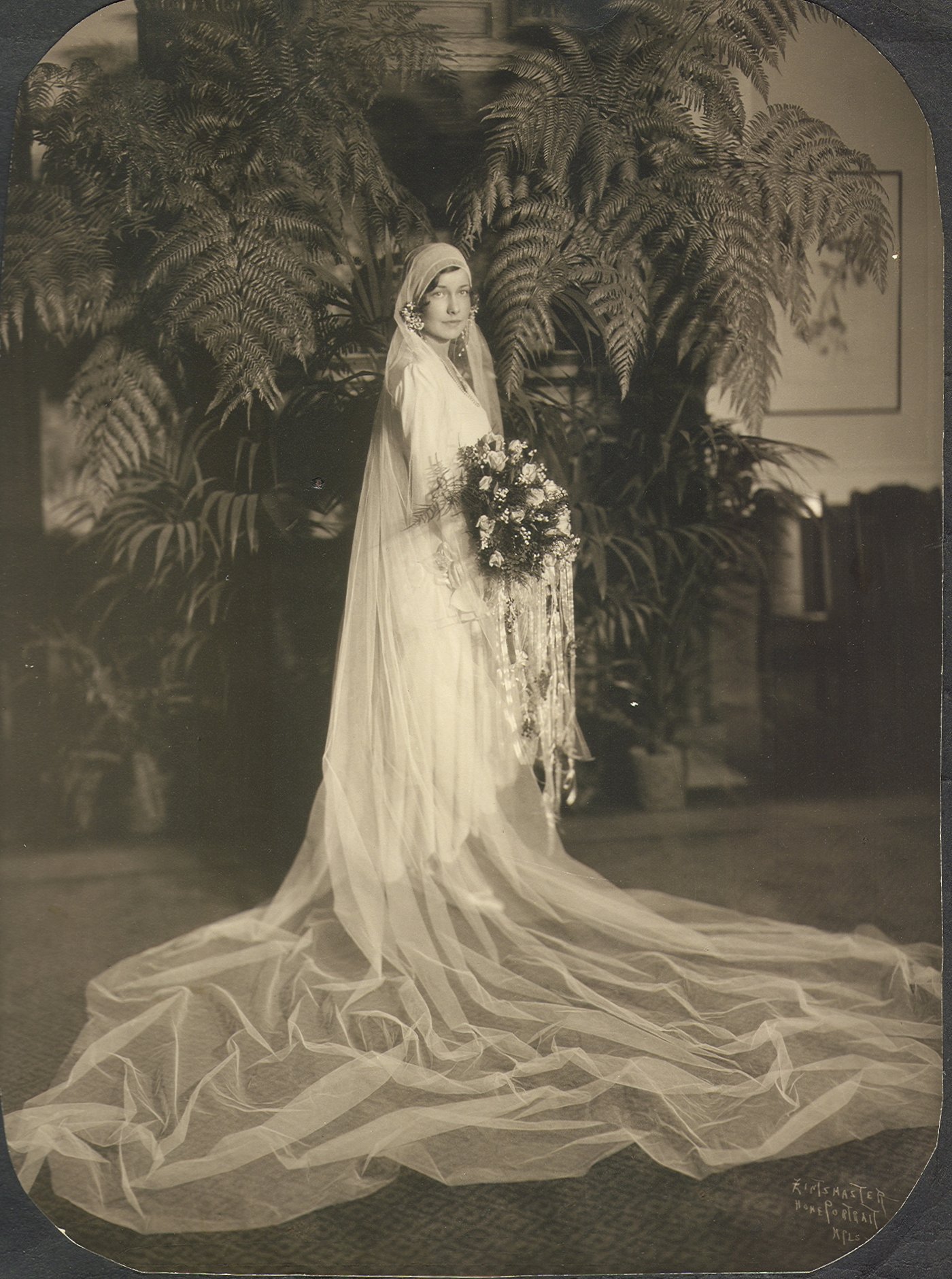|
Nikah
In Islam, nikah is a contract between two people. Both the groom and the bride are to consent to the marriage of their own free wills. A formal, binding contract – verbal or on paper – is considered integral to a religiously valid Islamic marriage, and outlines the rights and responsibilities of the groom and bride. Divorce in Islam can take a variety of forms, some executed by a husband personally and some executed by a religious court on behalf of a plaintiff wife who is successful in her legal divorce petition for valid cause. In addition to the usual marriage until death or divorce, there is a different fixed-term marriage known as ("temporary marriage") permitted only by the Twelver branch of Shi'ite for a pre-fixed period.Berg, H"Method and theory in the study of Islamic origins" Brill 2003 , 9789004126022. Accessed at Google Books 15 March 2014.Hughes, T"A Dictionary of Islam." Asian Educational Services 1 December 1995. Accessed 15 April 2014.Pohl, F"Muslim worl ... [...More Info...] [...Related Items...] OR: [Wikipedia] [Google] [Baidu] |
Nikah Mut'ah
''Nikah mut'ah'' ar, نكاح المتعة, nikāḥ al-mutʿah, literally "pleasure marriage"; temporary marriage or Sigheh ( fa, صیغه ، ازدواج موقت) is a private and verbal temporary marriage contract that is practiced in Twelver Shia Islam in which the duration of the marriage and the ''mahr'' must be specified and agreed upon in advance.Berg H"Method and theory in the study of Islamic origins" Brill 2003 , 9789004126022. Accessed at Google Books 15 March 2014. pp. 167-171,176Hughes T''A Dictionary of Islam'' Asian Educational Services 1 December 1995. Accessed 15 April 2014.Pohl F"Muslim world: modern muslim societies." Marshall Cavendish, 2010. , 1780761479277 Accessed at Google Books 15 March 2014. It is a private contract made in a verbal or written format. A declaration of the intent to marry and an acceptance of the terms are required as in other forms of marriage in Islam. According to Shia Muslims, Muhammad sanctioned ''nikah mut'ah'' (fixed-term m ... [...More Info...] [...Related Items...] OR: [Wikipedia] [Google] [Baidu] |
Divorce In Islam
Divorce in Islam can take a variety of forms, some initiated by the husband and some initiated by the wife. The main traditional legal categories are ''talaq'' ( repudiation), ''khulʿ'' (mutual divorce or ransom divorce) Historically, the rules of divorce were governed by sharia, as interpreted by traditional Islamic jurisprudence, though they differed depending on the legal school, and historical practices sometimes diverged from legal theory. In modern times, as personal status (family) laws have been codified, they generally have remained "within the orbit of Islamic law", but control over the norms of divorce shifted from traditional jurists to the state. Quranic principles According to the Quran, marriage is intended to be unbounded in time, as indicated by its characterization as a "firm bond" and by the rules governing divorce. The relationship between the spouses should ideally be based on love (''mawadda wa rahma'', 30:21) and important decisions concerning both ... [...More Info...] [...Related Items...] OR: [Wikipedia] [Google] [Baidu] |
Mahr
In Islam, a mahr (in ar, مهر; fa, مهريه; tr, mehir; sw, mahari; also transliterated ''mehr'', ''meher'', ''mehrieh'', or ''mahriyeh'') is the obligation, in the form of money or possessions paid by the groom, to the bride at the time of Islamic marriage (payment also has circumstances on when and how to pay). While the ''mahr'' is often money, it can also be anything agreed upon by the bride such as jewelry, home goods, furniture, a dwelling or some land. Mahr is typically specified in the marriage contract signed upon marriage. "Dower" is the English translation that comes closest to Islamic meaning of mahr, as "dower" refers to the payment from the husband or his family to the wife, especially to support her in the event of his death, although subsequent to marriage the wife also acquires inheritance rights. However, mahr is distinct from dower in two ways: 1) mahr is legally required for all Islamic marriages while dower is optional, and 2) mahr is required to be ... [...More Info...] [...Related Items...] OR: [Wikipedia] [Google] [Baidu] |
Matrimony
Marriage, also called matrimony or wedlock, is a culturally and often legally recognized union between people called spouses. It establishes rights and obligations between them, as well as between them and their children, and between them and their in-laws. It is considered a cultural universal, but the definition of marriage varies between cultures and religions, and over time. Typically, it is an institution in which interpersonal relationships, usually sexual, are acknowledged or sanctioned. In some cultures, marriage is recommended or considered to be compulsory before pursuing any sexual activity. A marriage ceremony is called a wedding. Individuals may marry for several reasons, including legal, social, libidinal, emotional, financial, spiritual, and religious purposes. Whom they marry may be influenced by gender, socially determined rules of incest, prescriptive marriage rules, parental choice, and individual desire. In some areas of the world, arrang ... [...More Info...] [...Related Items...] OR: [Wikipedia] [Google] [Baidu] |
Islamic Marriage Contract
An Islamic marriage contract is considered an integral part of an Islamic marriage, and outlines the rights and responsibilities of the groom and bride or other parties involved in marriage proceedings under Sharia. Whether it is considered a formal, binding contract depends on the jurisdiction. Islamic faith marriage contracts are not valid in English law. Witnessing In Sunni Islam, a marriage contract must have at least two witnesses. Proper witnessing is critical to the validation of the marriage, also acting as a protection against suspicions of adulterous relationships. In Shia Islam, witnesses to a marriage are not necessary. It is also believed that temporary marriage, or Nikah Mut'ah (a type of contract which had more relaxed requirements) was prohibited in Sunni Islam, the necessity of witnessing was introduced by Sunni caliphs, specifically Umar, to ensure that no couples engaged in secret union. Authorization Marriages are usually not held in mosques, (depending ... [...More Info...] [...Related Items...] OR: [Wikipedia] [Google] [Baidu] |
Sunan Abu Dawood
''Sunan Abu Dawood'' ( ar-at, سنن أبي داود, Sunan Abī Dāwūd) is one of the ''Kutub al-Sittah'' (six major hadith collections), collected by Abu Dawud al-Sijistani (d.889). Introduction Abu Dawood compiled twenty-one books related to Hadith and preferred those (plural of "Hadith") which were supported by the example of the companions of Muhammad. As for the contradictory , he states under the heading of 'Meat acquired by hunting for a pilgrim': "if there are two contradictory reports from the Prophet (SAW), an investigation should be made to establish what his companions have adopted". He wrote in his letter to the people of Mecca: "I have disclosed wherever there was too much weakness in regard to any tradition in my collection. But if I happen to leave a Hadith without any comment, it should be considered as sound, albeit some of them are more authentic than others". The Mursal Hadith (a tradition in which a companion is omitted and a successor narrates directly fr ... [...More Info...] [...Related Items...] OR: [Wikipedia] [Google] [Baidu] |
Nikah Misyar
A ''misyar marriage'' ( ar, زواج المسيار, nikah al-misyar or more often ''zawaj al-misyar'' "traveller's marriage") is a type of marriage contract allowed by some Sunni Muslims. The husband and wife thus joined are able to renounce some marital rights such as living together, the wife's rights to housing and maintenance money (''nafaqa''), and the husband's right to home-keeping and access. The practice is often used in some Islamic countries to give a legal recognition to behavior that might otherwise be considered adulterous via temporary, contractual marriages. In practice The Sheikh of al-Azhar mosque, Muhammad Sayyid Tantawi and theologian Yusuf Al-Qaradawi note in their writings and in their lectures that a major proportion of the few men who take a spouse in the framework of the ''misyar'' marriage are men who are married or women who are either divorced, widowed or beyond the customary marriage age. ''Arab News'' reported in 2014 that the “misyar marriages ... [...More Info...] [...Related Items...] OR: [Wikipedia] [Google] [Baidu] |
Wali (Islamic Legal Guardian)
''Walī'' ( ar, ولي, plural ʾawliyāʾ أولياء) is an Arabic word with a number of meanings, including, "protector", "helper", "a man close to God", or "holy man", etc. "Wali" can also mean a "legal guardian", or ruler; someone who has "Wilayah" (authority or guardianship) over somebody else, and in ''fiqh'' (Islamic jurisprudence) is often "an authorized agent of the bride in concluding a marriage contract (Islamic Law)", Traditionally, girls and women in Saudi Arabia, have been forbidden by law from travelling, obtaining a passport, conducting official business, obtaining employment, concluding a marriage contract, or undergoing certain medical procedures without permission from their guardian, who must be an adult Muslim male. (However in 2019 these guardian restrictions on adult women in Saudi Arabia were lifted from traveling, obtaining passports, or employment.) In the Islamic Republic of Iran, the Supreme Leader of the government is a ''wali al-faqih'' (gua ... [...More Info...] [...Related Items...] OR: [Wikipedia] [Google] [Baidu] |
Bride Price
Bride price, bride-dowry (Mahr in Islam), bride-wealth, or bride token, is money, property, or other form of wealth paid by a groom or his family to the woman or the family of the woman he will be married to or is just about to marry. Bride dowry is equivalent to dowry paid to the groom in some cultures, or used by the bride to help establish the new household, and dower, which is property settled on the bride herself by the groom at the time of marriage. Some cultures may practice both simultaneously. Many cultures practiced bride dowry prior to existing records. The tradition of giving bride dowry is practised in many Asian countries, the Middle East, parts of Africa and in some Pacific Island societies, notably those in Melanesia. The amount changing hands may range from a token to continue the traditional ritual, to many thousands of US dollars in some marriages in Thailand, and as much as a $100,000 in exceptionally large bride dowry in parts of Papua New Guinea where br ... [...More Info...] [...Related Items...] OR: [Wikipedia] [Google] [Baidu] |
Creative Wedding Photography
Creative may refer to: *Creativity, phenomenon whereby something new and valuable is created * "Creative" (song), a 2008 song by Leon Jackson * Creative class, a proposed socioeconomic class * Creative destruction, an economic term * Creative director, an occupation * Creative industries, exchange of finance for rights in intellectual properties * Creative nonfiction, a literary genre * Creative writing, an original, non-technical writing or composition * Creative Commons, an organization that deals with public copyright issues * Creative Labs, a brand owned by Creative Technology * Creative Technology Creative Technology Ltd. is a Singaporean multinational technology company headquartered with overseas offices in Shanghai, Tokyo, Dublin, and Silicon Valley (where in the US it is known as Creative Labs). The principal activities of the compa ..., Singapore-based manufacturer of computer products See also * Creativity (other) {{disambiguation ... [...More Info...] [...Related Items...] OR: [Wikipedia] [Google] [Baidu] |
Bride Signing Marriage Papers
A bride is a woman who is about to be married or who is newlywed. When marrying, the bride's future spouse, (if male) is usually referred to as the ''bridegroom'' or just ''groom''. In Western culture, a bride may be attended by a maid, bridesman and one or more bridesmaids. Etymology The word comes from the Old English 'bryd', a word shared with other Germanic languages. Its further origin is unknown. Attire In Europe and North America, the typical attire for a bride is a formal dress, and a veil. Usually, in the "white wedding" model, the bride's dress is bought specifically for the wedding, and is not in a style that could be worn for any subsequent events. Previously, until at least the middle of the 19th century, the bride generally wore her best dress, whatever color it was, or if the bride was well-off, she ordered a new dress in her favorite color and expected to wear it again. For first marriages in Western countries, a white wedding dress is usually worn, a tra ... [...More Info...] [...Related Items...] OR: [Wikipedia] [Google] [Baidu] |




